There are multiple options of getting rid of mosquitoes without paying anything. It is up to you which homemade mosquito repellent to choose. There is no reason why you can’t try them all to deal with the problem.
Some people are like magnets for mosquitoes because of the body heat, scent, or type of blood. And while not all mosquitoes are dangerous for your life and not all of them carry malaria, it is still unpleasant to suffer from their bites.
If you are looking for how to make mosquito repellent at home, read these affordable solutions to your problem.
Guide on Top Recipes That Will Cost You Nothing
You can always protect yourself from mosquitoes with a proper repellent. It does not have to contain DEET chemicals, which may cause health problems and are generally unfriendly to the environment.
To avoid using harmful ingredients, try to make your own mosquito spray. It will be more beneficial for children and people with allergies.
How to make mosquito repellent at home
[su_youtube url=”https://youtu.be/iD7FnsEGvEg”]
To make the repellent, you still need all the ingredients and a bottle to pour it. On average, a DIY mosquito repellent requires the next tools:
- Water;
- Essential oils;
- Base oils;
- Empty spray bottle.
If you still don’t have oils, you can always buy them online or in a drug store or beauty store. If you don’t want to pay for the spray bottles, just use those that you already have from the old sprays or perfumes.
All you need to do is to clean the bottle before you use it. There are numerous bottles offered online for a pretty affordable price.
I recommend you to avoid big bottles, as you are unlikely to need so much repellent, and they are heavy and inconvenient to carry.

The most popular recipe for any repellent is the following one:
- Fill half of the bottle with water (boiled or distilled);
- Add ¼-th of rubbing alcohol or vodka;
- Fill the rest of the bottle with the essential oil of your choice;
- Shake it carefully.
You have to make sure that all ingredients are well-mixed with each other. This is why you have to leave some space empty in the bottle. Do not use the repellent close to your eyes.
You can wear gloves to avoid skin irritation if you have an allergic reaction to some oils or other ingredients in the spray. Usually, almost any homemade insect repellent is safe for you and the environment.
Vinegar
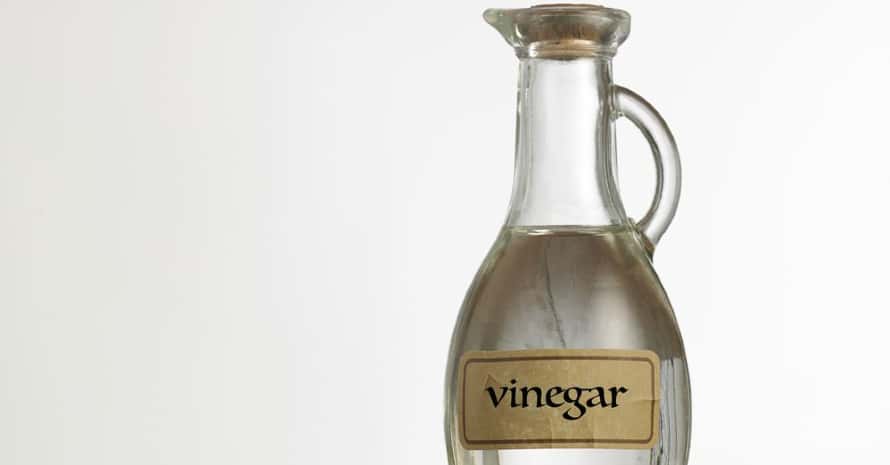
I could not have left this popular topic on the Web without attention. So, let’s talk about vinegar and mosquitoes. Vinegar is a natural acid that not only scares mosquitoes but kills them.
It can kill the larvae in 18 hours. If you want to use it as a repellent, mix:
- 1 tablespoon of vinegar;
- 10 drops of citronella oil;
- 30 ml of olive or coconut oil.
If you want to use it directly on mosquitoes, you have to find the place where they live and spray the vinegar on the larvae. Don’t mix it with anything else, especially with water. You won’t get any results. If you have sensitive skin, you shouldn’t apply this method to it.
Lemon eucalyptus oil
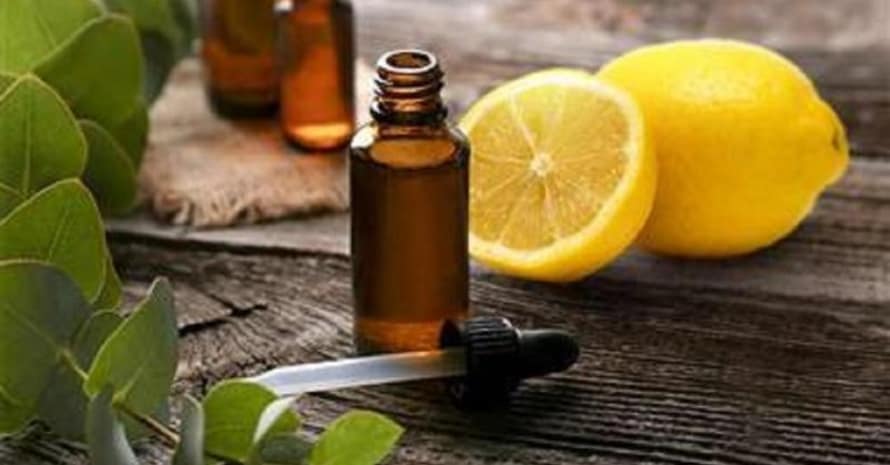
This is a natural mosquito spray that really works. It is also incredibly easy to make even to a newbie. All you need is:
- 10 ml oil of lemon eucalyptus;
- 90 ml of the base oil of your choice. I prefer the olive oil mainly because it is cheaper than coconut oil,
- but you can try both;
- Distilled water;
- Vodka.
Mix everything in the spray bottle. Shake all the ingredients so that they become the one solid substance. If you want to intensify the action of the repellent, don’t add water and vodka. The lemon eucalyptus is a well-known remedy against mosquitoes.
Our ancestors had been using it for centuries. There is p-menthane 3,8-diol and citronella inside the oil, which mosquitoes hate the most. If you order the oil, check out whether there are both ingredients present.
Also Read: Most Effective Mosquito Zappers
Neem oil and coconut oil
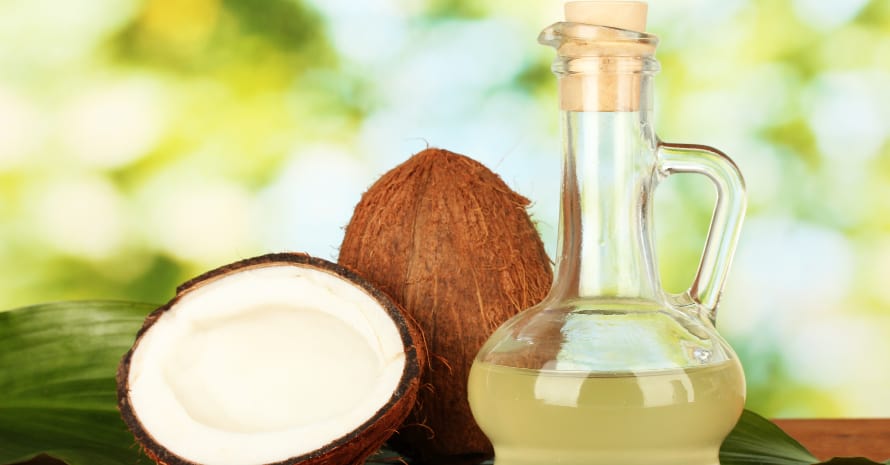
Neem oil is a helpful tool against mosquitoes in case you don’t mind feeling its strong scent in your house. I often use this repellent outdoors, but you may add the coconut oil into the mixture and spray it around the house as well.
This is the recipe suggested by Olivia Tan, the co-founder of CocoFax:
- 30 ml of the coconut oil;
- 10 drops of the oil of neem tree;
- Boiled water;
- Vodka.
You can apply it everywhere around the house or use this herbal repellent on your skin. Coconut oil intensifies the mosquito-repelling qualities of the neem oil.
If you are not sure whether you can inhale this scent for several hours, try it in one room at first. If you don’t have headaches and can easily wait until the aroma disappears, use it anywhere you want.
Tea tree oil and coconut oil
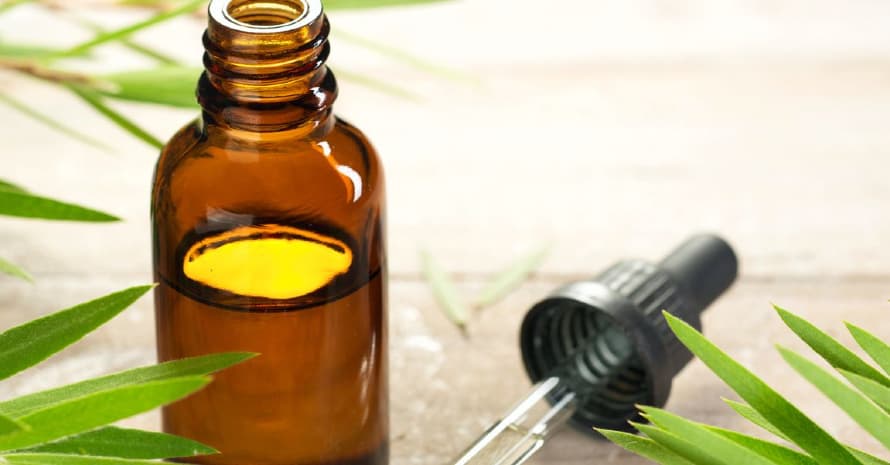
Tea tree oil is one of the most praised ingredients in numerous skincare products. Its relaxing abilities are known widely around the world. If you want to combine an aromatherapy session with getting rid of mosquitoes, this is your option.
This oil has antiseptic properties and can stop minor inflammatory processes in your body, according to numerous reviews. Maybe, you’ve already checked these features by healing mosquito bites. Why not add it in repellent? Here are the ingredients for the recipe:
- 30 ml of coconut oil. To save your money, buy this oil in a big bottle, you are likely to need it anyway in your household;
- 10 drops of tea tree oil;
- Water;
- Vodka.
Mix everything as described earlier. Shake it carefully. Apply in the places that are usually visited by mosquitoes. You can also apply it to your skin. Be careful with your eyes. If the substance gets in them, wash it with warm water.
Also Read: Best Mosquito Dunks Reviewed
Lavender oil, vanilla, and lemon juice
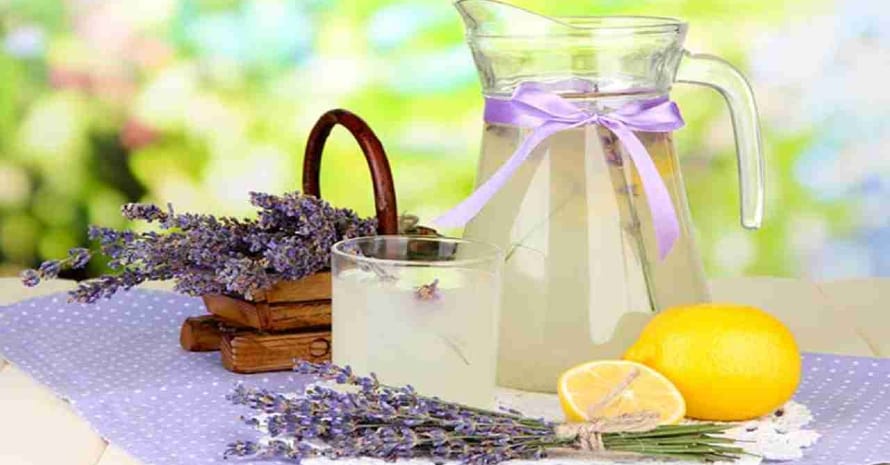
Lavender oil for mosquitoes is like holy water for vampires. Actually, it is good for numerous small pests, including bed bugs, moths, silverfish, lice, ants, and even spiders.
While this oil smells so nice to people, soothing and reminding us of pleasant summer nights, mosquitoes can’t stand it. They find its main compounds (camphor, limonene, eucalyptol, and linalool) highly repulsive. You can make a mosquito killing mix by using the next components:
- 3-4 tablespoons of lemon juice;
- 10-12 drops of lavender;
- 3-4 tablespoons of an extract of vanilla;
- Water.
You don’t have to add any alcohol or vodka to it. But if you want to prolong the effect, you can also add the latter as I’ve recommended before.
Shake the spray and apply it near the windows and doors. If you like the smell, you can also spray the furniture near your bed.
Lemongrass oil and rosemary oil

If you don’t like the sweet smell of lavender or vanilla, you may try the fresh aroma of lemongrass and rosemary. Lemongrass contains citronella and limonene inside. And rosemary has camphor, limonene, and eucalyptol to make sure that mosquitoes will not stay long at your house. To scare them away, combine the next components:
- 10 drops of rosemary essential oil;
- 10 drops of lemongrass oil;
- 60 ml of coconut or olive oil;
- Vodka;
- Water.
Mix all of the components together. You can pour the remedy into the aroma lamp or use it without vodka and water if you want. It works immediately.
Also Read: Best Mosquito Traps for Indoors & Outdoors
Popular Questions About Homemade Repellents
These questions about mosquito repellents are frequently asked on the Internet. If you still have more questions for me, you may find the answers here.
How to make citronella oil?
If you have citronella grass in your yard, you can use the steaming distillation method and make the oil by yourself. Make sure you have either Java citronella or Sri Lanka citronella species.
However, I don’t think that all these hours of waiting and complicated technology are worth getting a few drops of oil. You’d better learn all the ways to use citronella as the repellent and find the oil in the nearest drugstore at an affordable price.
What is a good home remedy for mosquito repellent?
All the remedies I have recommended above are considered the best DIY mosquito repellents. It is up to you which method to use. You can decide based on the aroma of these plant-based mosquito repellents which one you prefer the most. All of them don’t contain any harmful chemicals and can be applied to your skin, except for the vinegar.
Why does vanilla repel insects?
Vanilla is considered to be one of the most hateful scents for mosquitoes. The reason lies in its intensity. In the repellents, it interferes with their overly sensitive odors. It does not allow mosquitoes to smell the food. They can’t smell anything except vanilla in the room where this oil is repelled.
Most Helpful Recipe: What’s Yours?
I recommend using all these recipes one by one until you understand which one is the most suitable for your particular situation. If you live in an area with high humidity and an enormous number of mosquitoes, you may need some chemicals or professionally-made mosquito repellents against them.
Mosquitoes may spread hazardous diseases, and you don’t want to guess which one was dangerous and which was not after they bite you. If you have tried at least one of these recipes, please share your opinion in the comments below. Was it helpful? Do you have other effective homemade recipes you are willing to share?
Also read:
- Bugs That Look Like Mosquitoes
- How to Kill a Mosquito in Your Room
- How to Kill Mosquito Larvae
- Are Mosquitoes Attracted to Light
- What Eats Mosquitoes
References:
- Mosquito Repellents (Commonwealth of Massachusetts):
https://www.mass.gov/service-details/mosquito-repellents - How to Use Citronella As an Insect Repellent (WikiNow):
https://www.wikihow.com/Use-Citronella-As-an-Insect-Repellent - Plant-based insect repellents: a review of their efficacy, development and testing (National Center for Biotechnology Information, U.S. National Library of Medicine):
https://www.ncbi.nlm.nih.gov/pmc/articles/PMC3059459/#:~:text=Corymbia%20citriodora%20(Myrtaceae)%2C%20also,lemon%20eucalyptus%20trees%20(Table%20%E2%80%8B&text=Many%20plant%20extracts%20and%20oils,1). - Mosquito Repellents: Types and Recommendations (Mississippi State Department of Health):
https://msdh.ms.gov/msdhsite/_static/14,957,93.html

